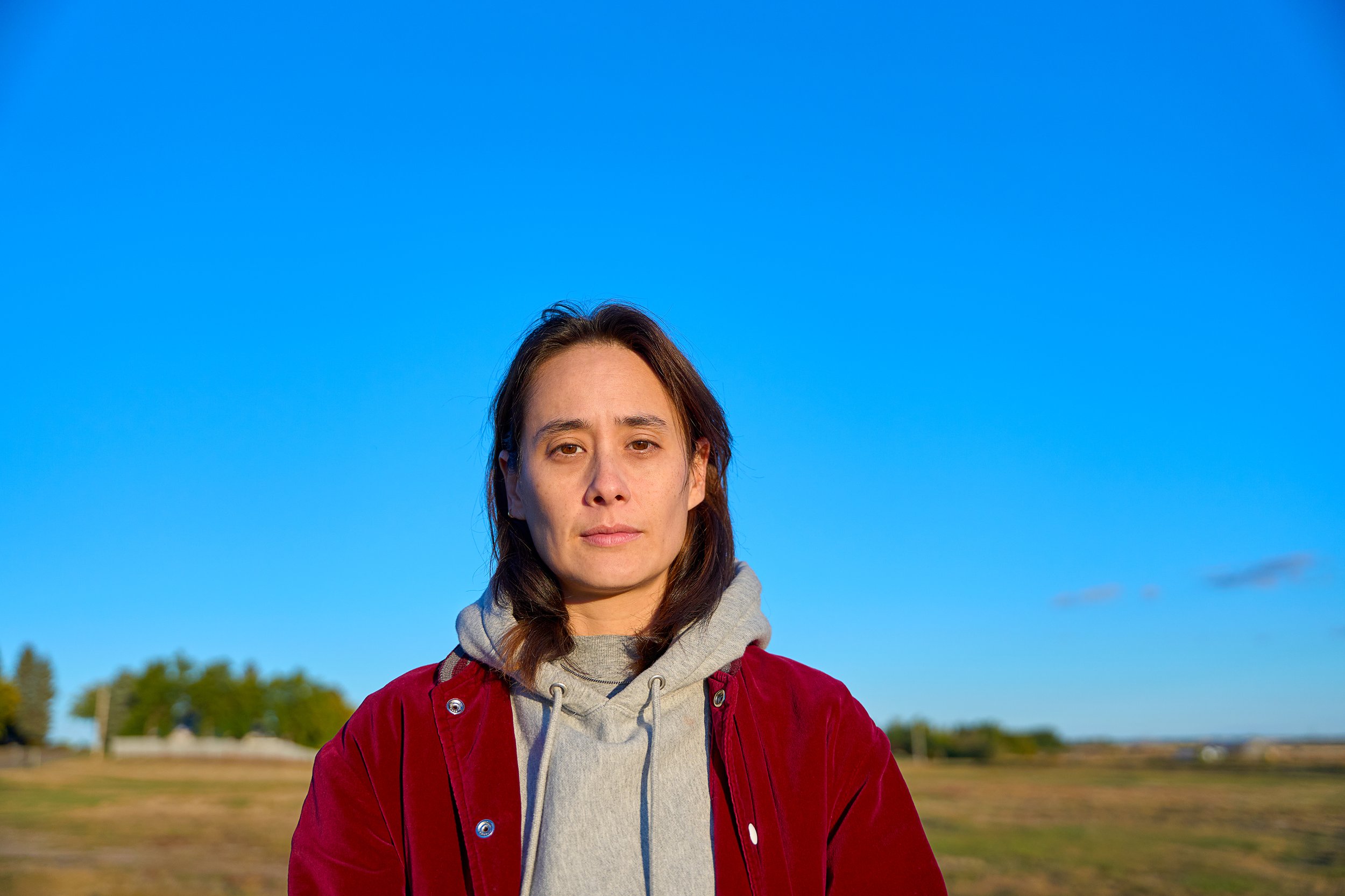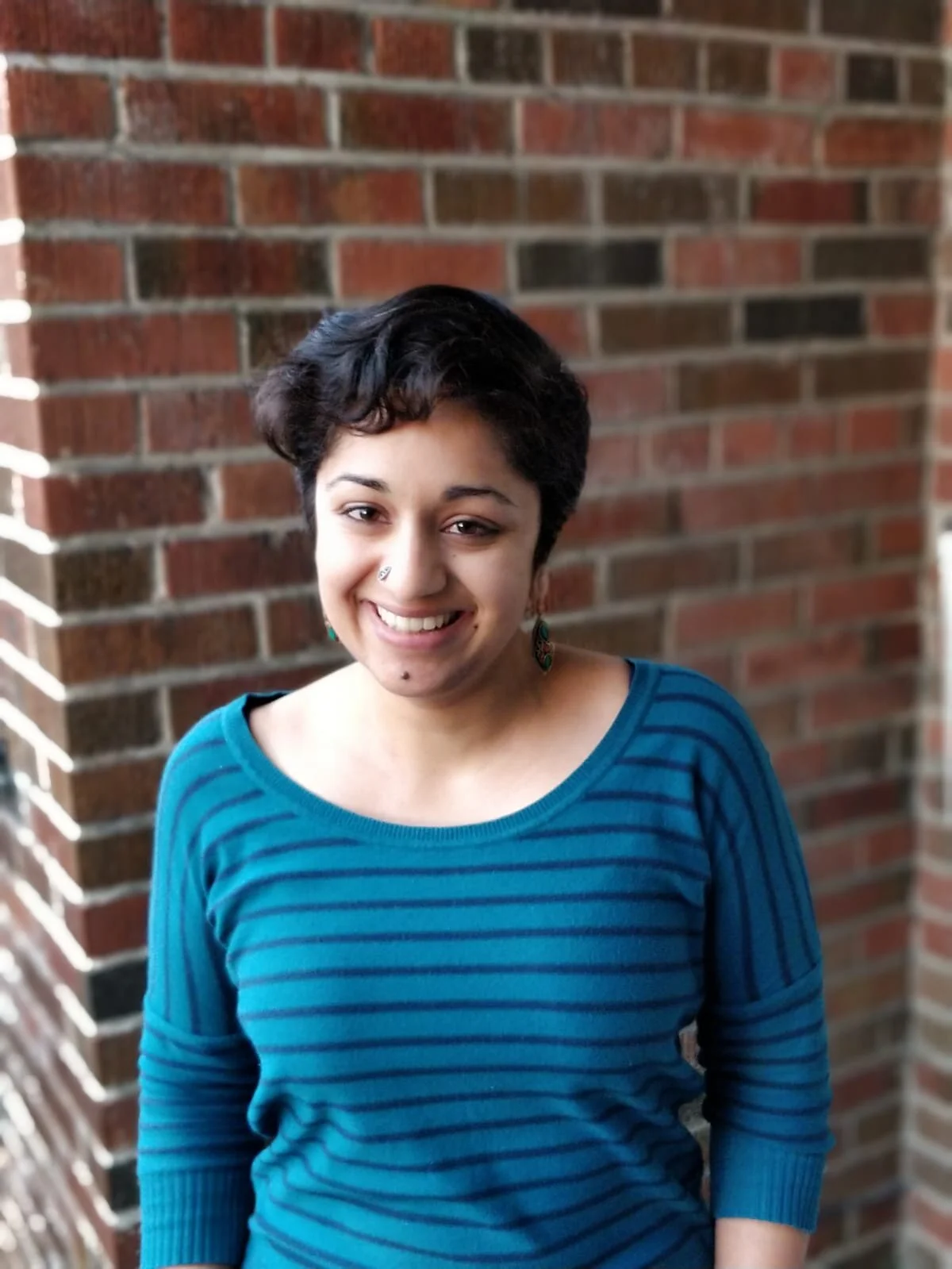I don’t necessarily think of the poem as being imposing. I write in the tradition of courage.
When I get through these uncomfortable times of not writing, I usually realize that I needed the space, and that not writing was not necessarily “unproductive” or empty space, but instead it is usually a time where ideas are percolating in weird and wonderful ways without my being fully aware.
There’s definitely an encyclopaedic urge in my writing to try to fit everything into a poem, to push against the boundaries of what a poem can contain. I think it varies for each project, but in Crying Dress I rarely sat down to write a poem from beginning to end.
I think every poem has a central element driving it, whether that be the speaker’s voice, a particular set of images, a line break that cracks the poem open, a strange prosody or twisting language, an unsettling way of framing an idea, a striking layout on the page—any of these things can catch my attention.
Writing is one of the few things that makes me feel at home in my body. I deeply believe in writing as a physical practice. The tools we use and the ways we sit and what we write on and what we hear while we write are all part of the process of moving a pen across the page (or pencil, or fingers across a keyboard.)
Somali people, we have a lot of pride. MashAllah. I've always seen Somali people as being very dignified, very proud, and not unaware of their shortcomings. Not perfect, of course, you know, they're human. We’re human. Humans have flaws, insecurities, and are complex.
Returning and the tension between its inevitability (as in repetition compulsion) and impossibility (you can never step into the same river twice) is always present in my work.
I’ve been a poet all this time, it’s been more than twenty years since my Saturn return, since I took my vow to poetry. It’s interesting to see the shifts that have been made over the decades and I see that there’s been some change–changing faster than the other art forms.
I think the impact of the magazine has changed. Part of that has been my growth as a person and learning from the many oversights we had when we started, like important changes to our understanding of what intersectional feminism means and should aspire to. I've grown so much through my participation in Canthius and I’m extremely grateful for the safe and caring community that allowed me to grow.
And I kept reading and kept writing. A lot of the poems came out of — as I think it does for many poets — stuff that I went through growing up. Family things. My family wasn't a big talking family. We don't talk to each other about feelings and things like that. Writing helps me process and think through painful memories—that I probably should have talked to a therapist about. Poetry helped.
Faith is a powerful point of connection between people, and is often expected to hold families together. So when different family members have different relationships with faith, it can affect everything about day-to-day life and also about moments of celebration.
In this interview, Digital Content Editor Manahil Bandukwala talks to Selina about her book, Undoing Hours (Nightwood Editions, 2021), community, editing, and writing/leaning into clichés.
choa was born from something personal, and I think that’s why it exists so dearly for both of us. For me, it’s grounded in a need to have a space where we can freely express our stories without any constrictions of expectations — of who we should be and what experiences we should have.
As with the title, “stunning” as excess (of attractiveness) or loss (of consciousness), there’s a dual quality to the grammar of the poem: fertile and dark. That’s a little frightening, now that I think about it. Once you’ve turned on the light, how many mutant grammars will there be in the room of the unconscious?
My griefs seem so significant and yet so small. I don’t know what it is about loss that invites comparison, but I find myself measuring, hopelessly, against all the other kinds of pain I can see.
In this interview, Manahil talks to Leslie about Threnody for a Drowned Girl. This chapbook of 17 poems narrates the journey of a woman who, after experiencing sexualized violence, descends into depths of the ocean. It is a tale of metamorphosis, healing, and hope.
In this interview, Manahil talks to Ellen about her new chapbook, snap, pop, performance, out with Gap Riot Press, as well as the joys of collaborative work. This interview was conducted over Zoom on January 2nd, 2021 and has been edited for clarity.
In this interview, Canthius Digital Content Editor Manahil Bandukwala talks to Natasha about her new book, Bittersweet, her project, FEEL WAYS, and the importance of mentorship to a writer. This interview was conducted on Zoom and edited for clarity.
In this interview, Canthius’s Digital Content Editor Manahil Bandukwala talks to natalie about her new chapbook, infinite redress, collaborations with musicians, and her press, battleaxe.
In this interview, Canthius team member Manahil Bandukwala chats with Molly about her forthcoming collection, Exhibitionist, coming into an honest voice as a writer, and work that she is excited about these days.
As we began to discuss the outside world in our classroom, the gendered world we lived in, the kinds of discussions we shared were unlike those I have experienced in any other setting. It felt to me that the bond our bodies shared shaped those conversations.
In this interview, Canthius editorial board member Manahil Bandukwala talks to Sheniz about connecting writers, mentorship, and cross-disciplinary projects.
In honour of Priscila Uppal, and a little over a year since her passing, an interview with fellow writers and friends of Priscila’s, Canisia Lubrin, Dani Spinosa and Meaghan Strimas.
We are thrilled to introduce the recipients of the first annual Priscila Uppal Memorial Prize for Poetry. Over 250 poems from over 100 poets were submitted to the contest and these were all carefully considered by judge Phoebe Wang.
Terese Mason Pierre is a writer, editor and organizer. Her work has appeared in Canthius, Strange Horizons, and Train: a poetry journal, among others. She is currently the poetry editor of Augur Magazine, a Canadian speculative and surrealism literature journal, and she volunteers with Shab-e She’r, a monthly poetry reading series. Terese lives and works in Toronto.
In this interview, Canthius editorial board member Manahil Bandukwala talks to poet Isabella Wang about her chapbook, On Forgetting a Language (Baseline Press, 2019), her community involvement and organizing, and her current project on writing and translating ghazals.
In this interview, Canthius editorial board member Manahil Bandukwala talks to publisher and poet Karen Schindler about Baseline Press, the London poetry community, and the labour that goes into running a small press.
Phoebe Wang is the judge for the 2019 Priscila Uppal Memorial Award For Poetry. In this interview, Manahil Bandukwala talks to Phoebe about her role in nurturing BIPOC writers, submitting to contests, and what she’s looking for in a winning poem.
Sanna Wani is a person and poet around Toronto. Her work is available in The Puritan, Peach Mag and TIME. She loves daisies.






























I pushed it to the limit a lot of the time. I have never been the type to recast things in an ominous light. I wanted to keep that [feeling] in the book—that we can ignore things and still feel the pressures of it.